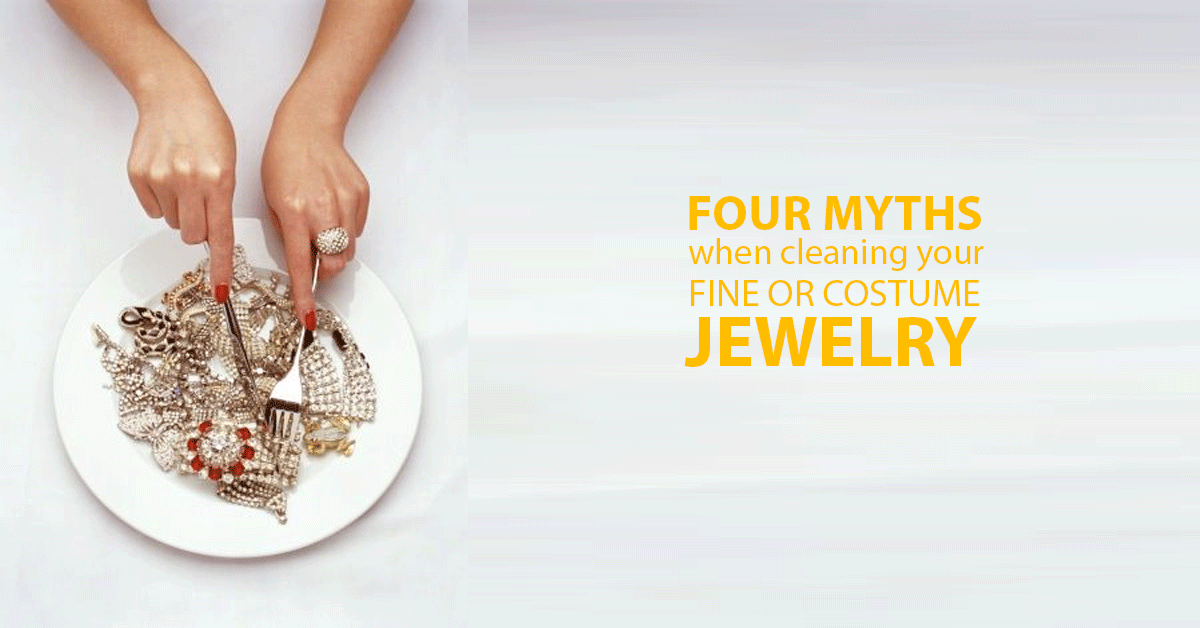Your Cart is Empty

Some people think boiling water is a great way to clean jewelry and gemstones because they think it mimics the ultrasonic cleaners used by professional jewelers.
FALSE.
Ultrasonic cleaners use high frequency sound waves and heat to remove dirt from hard-to-reach places. The heat temperature in an ultrasonic cleaner is regulated and will NEVER reach the boiling point. Boiling can cause damage to your gemstones and not only that; extreme heat will affect the metal by expanding the metal and for some jewelry pieces the expansion will cause gemstones and diamonds to become loose. Some gemstones can experience thermal shock when placed into boiling water then rinsed with cold water, which can cause a gemstone to form fractures or cleavages.
One of the most common myth when it comes to cleaning jewelry is using toothpaste to clean your jewelry.
FALSE.
Toothpaste can damage your diamonds, gemstones and gold. Gemstones have a certain hardness rating that explains a gemstones (or the metal type) ability to withstand scratches. Since toothpaste has a hardness around 3/4 Mohs, and 14k gold has a hardness of 3-3.5 Mohs, toothpaste can actually scratch damage your gold rings.
Many gemstones have a hardness rating that is equal to or just a bit higher then toothpaste. Gemstones such as emeralds and tanzanite have hardness around 7/8 Mohs; these gemstones can get surface abrasions if toothpaste is used to clean them. Pearls and opals should never be touched by jewelry cleaner or toothpaste; it can destroy their color and luster. So unless you are cleaning a loose diamond, it is best to not use your toothpaste, and stick with a jewelry cleaner made to clean your specific jewels.
Many people don’t think twice before jumping into a pool or cleaning their bathrooms while wearing their jewelry. This can cause significant harm to your precious pieces.
Chlorine can break down the alloys in gold and cause pitting to occurs which can cause the piece to become brittle and break apart. Chlorine can also cause certain metals such as silver to change color and lose its shine. It is best to remove your jewelry before these activities, and NEVER clean your jewelry with this substance.
There are rumors that alcohol, when used to soak or rinse jewelry will help remove the grease buildup. Alcohol contains chemicals and can leave a coating on your gemstones and metals. Some gemstones such as emeralds and opals are oil and water based, if alcohol was used on these pieces it would absorb the oils and cause the gemstone to dry out and crack.
The best way to clean your jewelry is to take it to your nearest jeweler and have them professionally clean it. It's like taking your delicate clothing to the dry cleaners.
The next best solution is to use soap and water and gently brush your pieces with a SOFT toothbrush. This method cannot be used for pearls which should be wiped down with a cloth.
I've been cleaning my set of these 14kt Rose Gold Filled Stretch Bracelets for about a year now using the next best solution, and it is just as bright and vibrant from the first day I wore them!